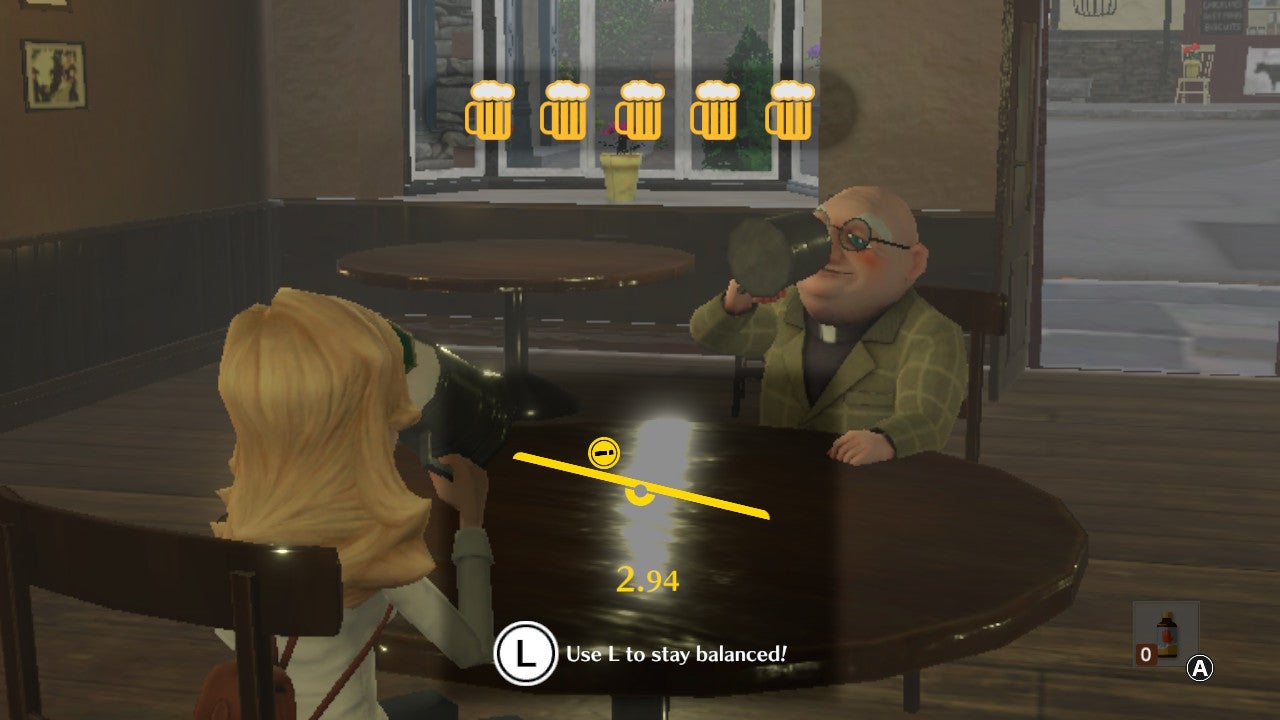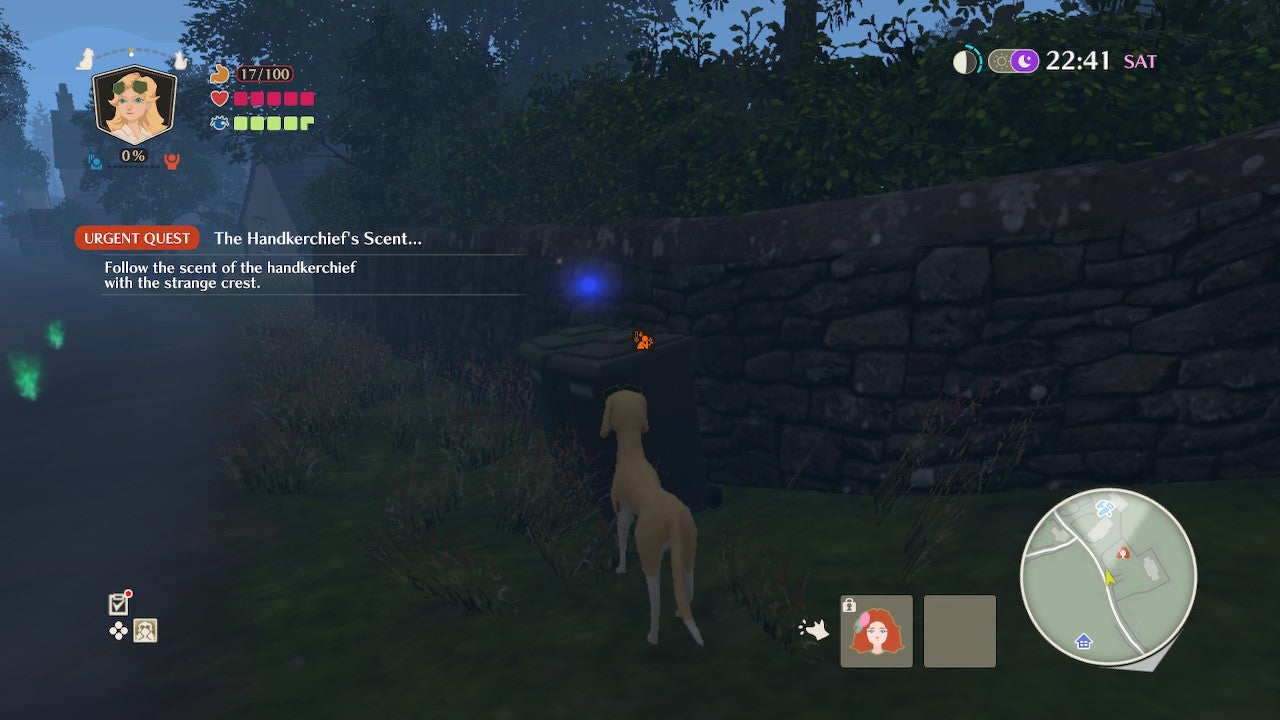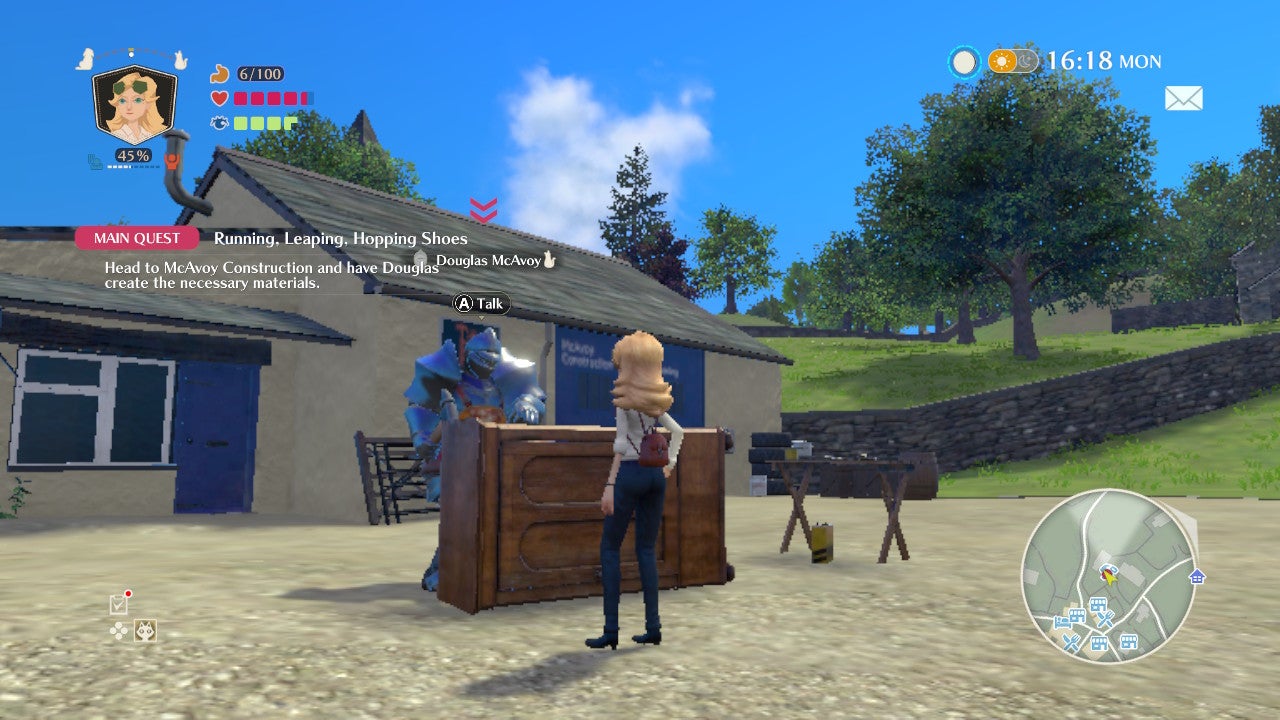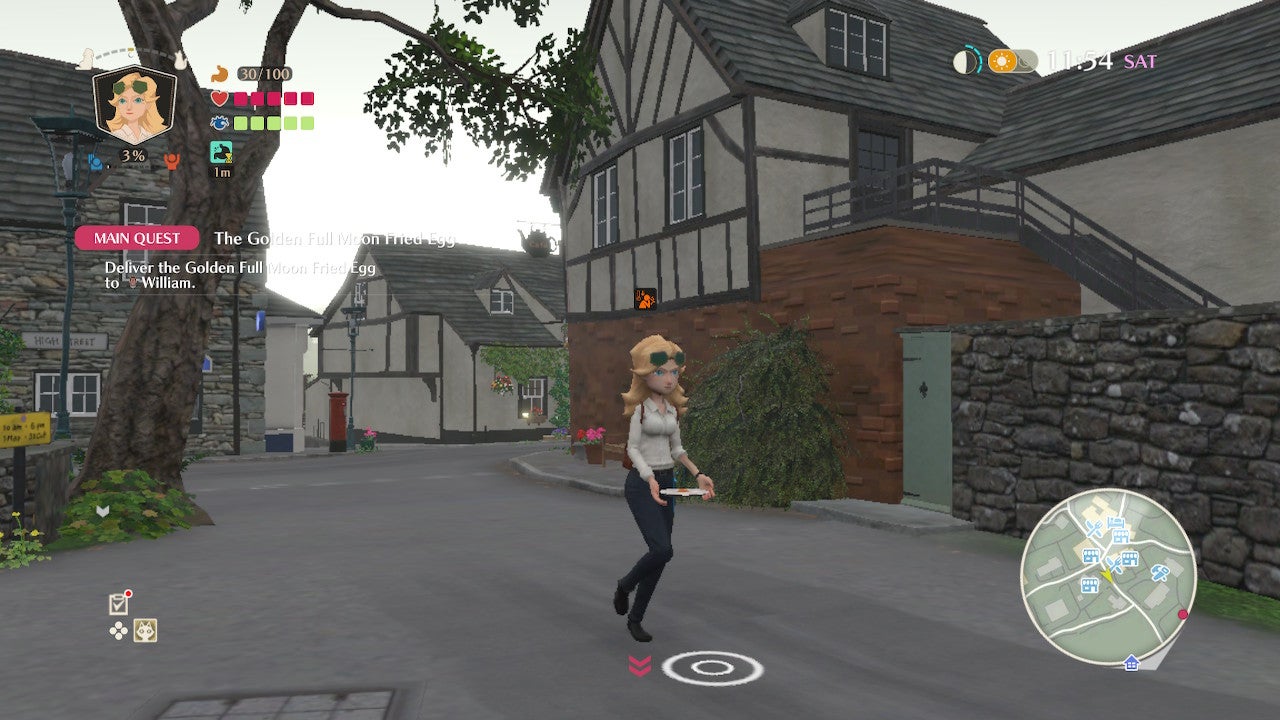Which works quite well, really, given its premise: you’re a highly strung New York photographer Naomi Hayward, who’s somehow inexplicably found herself in a mountain of debt to an English newspaper and so settles down into the town of Rainy Woods (a name that’ll be familiar, I’m sure, to fans of Swery’s wider oeuvre) to unearth its secrets and earn back some of that cash by taking photos of its people and places. Why exactly are you in debt to an English newspaper, and where exactly is this village whose genesis came from a press trip Swery once made to Hitchin yet that seems to be set somewhere in the imagined ether between Lancashire and Cornwall? Why does everyone in the village turn into a cat or dog on certain evenings? To get too hung up on certain details feels like missing the point a little bit when there are so many other details to get lost in - indeed, the most surprising part of The Good Life is how deep its life sim systems run, how vast and generous its open world is, and how genuine its depiction of little England can be, sometimes matching the great Everybody’s Gone to the Rapture in capturing the quaint, quietly run-down villages nestled deep within the countryside. The Good Life bends the quirks of country life to different ends, though, thick with the character and whimsy of Deadly Premonition but this time served up with distinctively English tics and traits. Within Rainy Woods the villagers keep to their routines as the clock turns and day turns to night - it’s a little like Animal Crossing, only instead of anthropomorphized animals there’s a boozy vicar, a deeply vain novelist, or the witch doctor who lives deep in the woods and occasionally utters ‘bollocks’ in the best reading of the word I’ve ever come across in a video game. This is not a game with a fully-voiced cast, though - they’re reduced to single lines repeated as punctuation, a limitation that extends to Naomi herself who continually exclaims ‘goddamn hellhole’ as she’s tasked with increasingly ridiculous chores. In The Good Life there are fetch quests - good lord there are so many fetch quests - and there’s sheep racing and mystery hunts and light puzzling nestled within the open world. There’s a further wrinkle added by the fact that, after a certain point, you can change into a cat or dog at any point to unlock further possibilities. It’s a lot, and it doesn’t necessarily hang together well. For all its generosity, there’s an awful lot of creakiness to The Good Life, the sense of a game that’s somewhat out of its time. I’ve been pushing through The Good Life on Switch - obviously the least capable of all the platforms this is available on - but no matter where you play you’ll have to endure crude models and animation, all excused slightly by a toytown aesthetic, and miserly draw distances and frame rates. It’s not pretty, but it doesn’t ever suffer from Deadly Premonition 2’s woes - indeed, being developed by Grounding rather than Swery’s own White Owls, this can feel like Ratchet & Clank: A Rift Apart in comparison. This is an unpolished, often frustrating and sometimes flaccid open world adventure, then, but it’s one with an awful lot of heart and surprising depth. It leans heavily into its life sim aspects, asking you to keep Naomi fed and rested, occasionally inflicting a cold or even worse a broken limb that you must attend to if you don’t want to be a limping mess that blacks out outside the post office in the middle of the day.Though that will likely happen anyway, as everything in The Good Life is a bit of a mess - tracking quests is a pain, inventory management is a nightmare and everything feels like it’s on the brink of collapsing at any moment. It’s riddled with what could be huge inconsistencies or simply a string of baffling non sequiturs - I’m not sure which one it is myself, and I’m pretty sure neither does Swery, but the conflicts can be painful. It’s a major failing that a game that revels in its gentle freedoms to then makes the simple act of moving about the town one of attrition and constant failures. Push through that, though, and The Good Life can be a gentle, hugely charismatic and surprisingly rich experience; a game about photography in which you’re invited to poke and prod at the slowly grinding gears of country life, sometimes told with disarming authenticity. For all it leans on fairy tales and myth - there’s a healthy dose of Arthurian legend here, as well as cameos from detectives that look suspiciously like Arthur Conan Doyle’s famous creations - it’s the smaller details that coalesce and convince. It’s having the right type of bins outside the house, the sense of quiet lethargy that hangs over the village centre, or the joy of turning your back on it all to go traipsing across the nearby fields. It’s an absolute mess, as you’d probably expect from a Swery joint, with the familiar shortcomings when it comes to the technical details and lumpy writing. It’s also got that same spark as the likes of Deadly Premonition, scruffily pushing at the limits of what’s possible, as well as pushing beyond the limits of the team’s technical abilities. Here’s an adventure that’s as confounding as it is charming, the small town of Rainy Woods always ready with a surprise or two.



